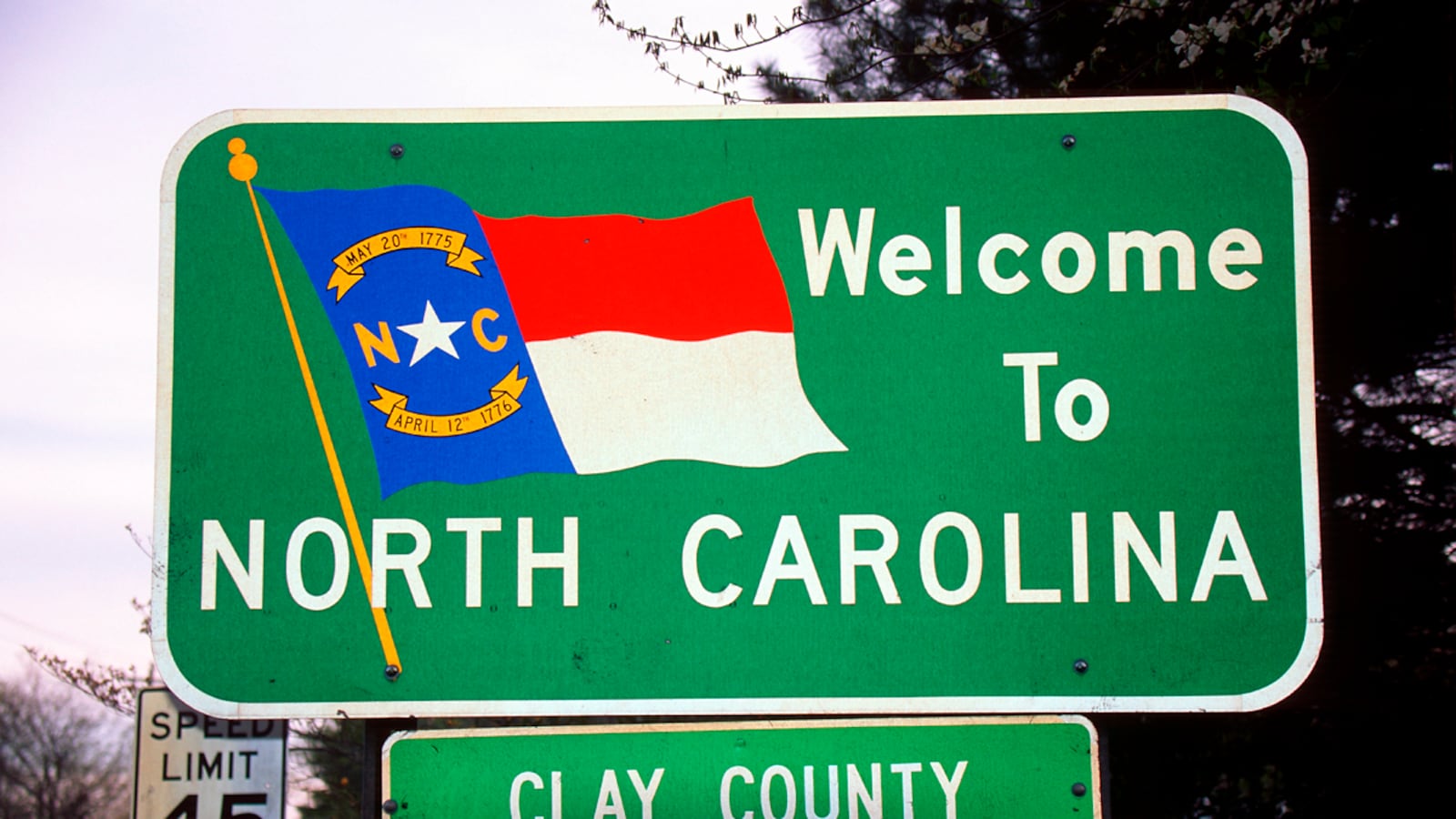When the Obama campaign last year picked Charlotte, N.C., as the host city for the 2012 Democratic National Convention, they hoped to double down on the president’s historic victory four years ago, when his electoral coalition of young, black, and college-educated white voters made him the first Democrat to carry the Tar Heel State since Jimmy Carter in 1976.

But while polls show Barack Obama and Mitt Romney neck-and-neck in the state, the president's choice to hold the convention there could come back to haunt him, given the convergence of angry labor unions, an unfortunately named venue, embarrassing local political scandals, Occupy Wall Street protesters, and the voters’ decision this year to pass a state constitutional amendment banning gay marriage and civil unions.
Democrats will be deciding whether or not to add a party plank in line with Obama’s personal declaration in support of gay marriage, which came just days after North Carolinians voted overwhelmingly against it. That vote led more than 30,000 people to quickly sign a petition from a New York–based marriage-equality group to move the convention elsewhere, though timing and logistics alone render that functionally impossible.
The president might be able to contain any bleeding of Southern white support in the wake of his move on gay marriage with aggressive populist rhetoric that makes the Democratic Party’s base fire on all cylinders, said Dave “Mudcat” Saunders, a strategist who has helped Democrats like John Edwards and Virginia Sen. Mark Warner hone their cultural appeals to rural Southerners.
“If Obama can strategically place himself as the anti–Wall Street candidate, then that far exceeds the gay question,” said Saunders.
But the economic backdrop is far from ideal for the president looking to sell voters on the Obama recovery. North Carolina’s unemployment rate has persistently been above the national average, at 9.4 percent last month, and Charlotte is the world headquarters of Bank of America, a bailed-out megabank so closely associated with the financial collapse of 2008 that Occupy Wall Street has devoted a campaign specifically to breaking it up. Protesters will be on the streets of Charlotte taking aim at the bank even as President Obama delivers his acceptance speech—at Bank of America Stadium. And labor unions are fuming that the convention is being held in a so-called right-to-work state (where union membership or dues cannot be required for employment).
“It was always a bit of a risky choice to target North Carolina just by the way of electoral history,” said John Dinan, a political scientist at Wake Forest University and an expert on local politics. “North Carolina is a Republican-leaning state that [Obama] won by 14,000 votes in 2008, a really, really good year for Democrats.”
Since then the Tea Party has upended American politics, remaking state legislatures and Congress, and pitting Republican governors against labor unions. Labor, which remains the bedrock organizing arm of the Democratic Party, is miffed that national Democrats chose to meet in the state with the smallest proportion of union members—just 2.9 percent of the workforce last year—to make their case for a strengthening the middle class and broadening economic prosperity. Some locals are planning to skip or even protest the convention, and labor has pointedly declined to contribute its expected share of the convention’s costs, which will be upwards of $36 million this year.
“There’s no doubt that the Democratic Party in North Carolina has been having bad optics, bad overall news, for the last few months,” said Dinan.
And that run of bad news for Democrats seems likely to continue through September. After the state seemed to shift toward the party with Obama’s historic win in 2008, Republicans just two years later took control of the state legislature for the first time since the 19th century, and the first-term Democratic governor, Bev Perdue, is retiring in the face of polls showing she would have no chance at winning reelection.
Compounding the Democrats’ branding troubles in the Tar Heel State are two sex scandals involving former party political stars—the trial of former senator John Edwards, John F. Kerry’s vice presidential running mate in 2004 and the most outspoken populist in the 2008 presidential primary, and the ongoing investigation of the state party chair, David Parker, for bungling his own inquiry into whether his executive director sexually harassed an employee. After briefly resigning, Parker has returned to his office and is fighting to keep it. He may well still be there and fighting when the convention arrives.
“When North Carolina was picked, it was an excellent choice,” said election expert Larry J. Sabato of the University of Virginia. “As it has happened, North Carolina is going to be less competitive. [Democrats are] less inclined to admit the state is already gone, but it probably is, unless there’s a big Obama resurgence in the fall. They’ve got a very high unemployment rate.”
Correction: An earlier version of this story said Lyndon Johnson in 1964 was the last Democrat to have won North Carolina in a presidential election.






